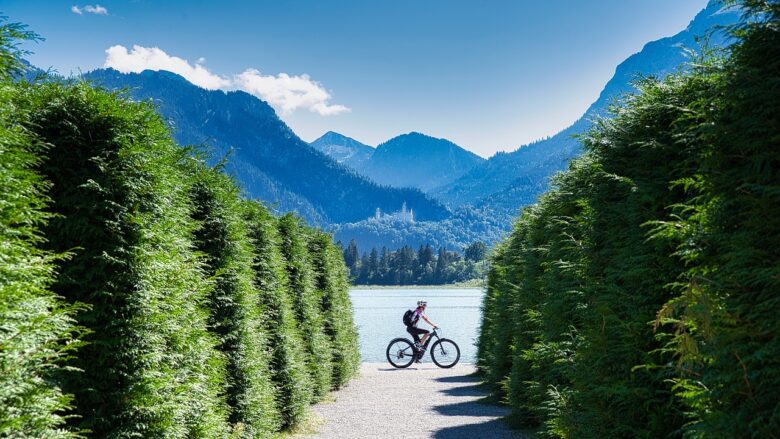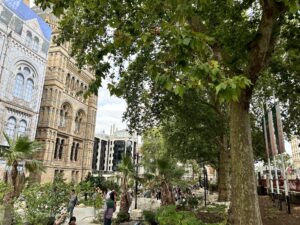In the past six months, me and my family took on two long-distance travels, both trips were incredible, particularly emotionally! Finally, we were able to reunite with our parents, relatives and old friends after a long frustrating time because of the pandemic.
The 13 hours flight each way wasn’t easy, but we managed it OK! The excitement of going to homeland definitely made the outbound journey shorter. However, on our second trip, my husband challenged himself by mumbling “I’m middle-aged and make a decent living, how come we still fly in economy class?!” I wondered if we would ever be able to afford flying in premium classes for holidays, perhaps only if we won the lottery. It’s not the end of the world but I can tell this topic bothered us. The societal expectation to fly in premium cabins as a symbol of affluence weighed somehow on my husband’s mind.
Our mindset has been shaped by the commercial world and its values. Sitting in premium class not only makes the flight journey a lot more comfortable physically, but also psychologically.
Over the next two weeks, my mindset shifted dramatically. I discovered that economy class has a significantly lower carbon footprint compared to premium class, with business class emitting three times more CO₂ and first class emitting ten times more. Now I feel much better about not being able to afford business class, it not only saves us a fortune but also an environmentally conscious choice (when flying is not avoidable).
I started to reflect on the sustainability part of my holidays. I realised that keeping the sustainable practices while travelling could be challenging, it can be compromised or simply forgotten, for example prioritising convenience over eco friendly options when on the go, or choosing the economic options subconsciously. However, despite many challenges, it will never prevent me from becoming a more sustainable traveller. In fact, 76% of travellers want to travel more sustainably according to a survey carried out by booking.com.
Here are some sustainable practices I’m proud we maintained while travelling:

- Minimising Food Waste: Ordering the right amount of food at restaurants not only reduces waste but also saves money. By being mindful of portion sizes and sharing dishes when possible, we were able to enjoy our meals without contributing to food waste, including breakfast buffets.
- Carrying Reusable Bags: Bringing a canvas shopping tote allowed us to avoid single-use plastic bags while shopping. Having a reusable bag on hand also made it easier to say no to plastic or paper bags offered by retailers.
- Opting for Low-Carbon Transport: We opted for efficient and low-carbon transportation – trains, tubes, electric buses and taxis, cycling and walking, which helped us minimise our carbon footprint while exploring new destinations. Not only did these modes of transport reduce emissions, but they also allowed us to experience the local culture and scenery up close.
- Conserving Energy: Being mindful of energy consumption in hotel rooms by turning off lights and appliances when not in use helped us reduce our environmental impact during our stay. Simple actions like turning off lights when leaving the room or adjusting the thermostat to conserve energy can make a big difference over time.
- Packing Responsibly: Bringing our own toothbrushes and personal care products allowed us to avoid single-use plastic items provided by the accommodations.
- Avoiding Impulse Shopping: Resisting the urge to purchase unnecessary souvenirs or trinkets helped us minimise waste and reduce clutter in the house. Instead of buying items on a whim, we focused on collecting meaningful experiences and memories during our travels.
- Providing Feedback: Leaving thorough feedback for accommodations not only helps future travellers make informed decisions but also encourages hotels and resorts to adopt more sustainable practices. By acknowledging their efforts and suggesting areas for improvement, we can support businesses that prioritize sustainability.
While these practices helped us minimise our environmental impact during our travels, there are still areas where we can improve:

- Choosing Sustainable Accommodations: Considering sustainability factors when booking accommodations, such as eco-friendly certifications, energy-efficient practices, and waste reduction initiatives, can help travellers make greener choices. Websites like Booking.com and TripAdvisor now offer filters for eco-friendly accommodations, making it easier to find hotels that align with our values.
- Reducing Single-Use Plastics: Despite bringing reusable water bottles, we found it challenging to locate public water refill stations in some destinations. To reduce our consumption of single-use plastic bottled water, we plan to research refill options in advance and carry reusable bottles with us at all times.
- Supporting Local Communities: Opting for locally sourced food and supporting locally owned restaurants not only reduces our carbon footprint but also contributes to the local economy. By dining at establishments that prioritise local ingredients and sustainable practices, we can support small businesses and reduce our impact on the environment.
- Embracing Slow Travel: Spending more time in nature and less time at overcrowded Instagram tourist hotspots allows us to appreciate the beauty of our surroundings without contributing to overtourism. Exploring off-the-beaten-path destinations and engaging in outdoor activities like hiking, biking, and wildlife watching can provide enriching experiences while minimising our impact on fragile ecosystems.
- Offsetting Carbon Emissions: Calculating our travel carbon footprint and offsetting it through reputable providers can help us mitigate the environmental impact of our journeys. By investing in carbon offset projects that support renewable energy, reforestation, and community development, we can take responsibility for our emissions and support initiatives that benefit the planet.
In closing, let’s remember that sustainability isn’t just a trend—it’s a responsibility. As travellers, we have the power to make choices that minimise our environmental impact and contribute positively to the places we visit. By integrating simple yet impactful practices into our travel routines, we can help preserve the planet’s beauty and cultural heritage for future generations. So, whether we’re exploring bustling cities, tranquil landscapes, or hidden gems off the beaten path, let’s tread lightly, leave a positive footprint, and ensure that our adventures support rather than harm the world around us.


Comments
Howdy! Do you use Twitter? I’d like to follow
you if that would be okay. I’m absolutely enjoying your blog
and look forward to new posts.
It’s difficult to find knowledgeable people in this particular
subject, but you sound like you know what you’re talking about!
Thanks